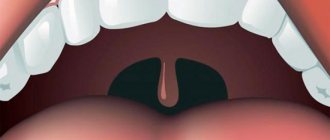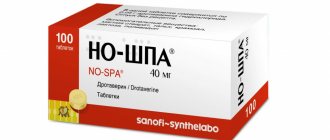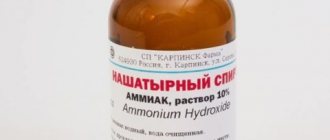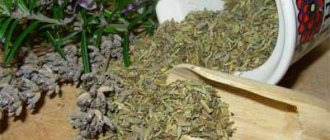A tongue burn is an injury that damages the mucous membrane, and in some cases even muscle tissue. This problem brings a lot of discomfort - from pain and the inability to eat or drink liquids to death. It is very important to urgently contact a specialist who, after studying the cause of the burn, will prescribe treatment. If you neglect the help of a qualified dentist, serious complications can occur, including necrotic decomposition of soft tissues and infection of the entire body.
Types of tongue burns
Depending on the cause of origin, the following types of injury are distinguished:
- Chemical burn of the tongue or oral cavity - when tissues are damaged as a result of exposure to aggressive chemical compounds;
- Thermal - when the surface was exposed to a high temperature object.
- Electrical - occurs as a result of tissue contact with electricity. For example, when performing dental procedures. Electric current affects not only the tissues of the tongue, but the entire body as a whole.
Folk remedies
What to do if you burn your tongue? To do this, you can use recipes for unconventional methods of treatment. Folk remedies include many plants that have medicinal effects. Based on them, ointments and infusions are made, the juice is squeezed out, and the leaves are used to apply compresses. Such remedies can be used in the treatment of tongue burns. Drinking freshly squeezed juices improves immunity and speeds up the healing process. Raw carrot juice is especially beneficial.
In this case, it is necessary to exclude the intake of spicy, sour, fried, and hot foods.
Do not wipe the burned surface with alcohol or use ointments intended for the treatment of burns of the external skin.
The child burned his tongue with hot water. What to do? After rinsing his mouth, you can let him lick the ice cream. This will relieve pain and calm the baby.
Sprinkling the wound with sugar and smearing it with honey helps relieve pain and speeds up healing. You can relieve pain by sucking on a cough drop or mint candy. Vitamin E has a healing effect if you pour it from the capsule onto a burn. The use of decoctions of herbs such as calendula and chamomile can disinfect the affected tissue.
If you take all measures to limit injury to your burned tongue, the healing process will go much faster.
What to do if you burn your tongue and there is a wonderful aloe plant on the windowsill? You need to cut a piece of the leaf and apply it to the burned area for a few minutes. It will relieve pain as a result of its healing properties.
If a friend burns her tongue, what should she do? Folk remedies are always available to alleviate the condition.
Symptoms of a tongue burn
Symptoms depend on the extent of soft tissue damage:
First degree - a burn occurs due to short-term exposure to high temperature tissue. The patient experiences slight redness and swelling of the mucous membrane. Often, a burn condition is provoked by consuming too hot food or liquid.
Second degree – swelling of the mucous membrane, redness, and multiple blisters on the surface are observed.
Third degree - accompanied by tissue death, large blisters, redness of the surface, the organ itself seems to “change its consistency.” As a rule, it occurs due to exposure to gases, liquids at elevated temperatures, or chemical compounds.
The fourth degree is a severe lesion when the tissues are charred. This burn condition is rarely compatible with life.
What it is?
The spots that appear on the tongue differ in color and size. It is important to understand what exactly is hidden under the usual redness on the tongue and is it worth worrying about?
The first thing you need to pay attention to is the color of the formation and the presence of plaque. As you know, the normal color of the tongue is pink. Also, an accumulation of small plaque may be observed on the organ, which is explained by non-compliance with generally accepted hygiene rules.
It is worth noting that plaque can also form due to various pathologies that affect the normal functioning of the gastrointestinal tract. In this case, it would be wise to adjust your daily diet.
As mentioned earlier, red spots can be of various types, so it is worth taking a closer look at the causes of this phenomenon.
How to properly treat a tongue burn?
Treatment methods depend on the type of thermal injury.
What to do in case of a thermal burn of the tongue?
- rinse your mouth with cool water;
- apply ice or a cold object to the damaged area;
- treat the burn site with a disinfectant solution;
- rinse with a disinfectant to prevent bacteria from entering the oral cavity;
- use local anesthetic compounds;
- while the tongue is recovering, eat liquids, fruits and vegetables rich in vitamins C and B. Avoid spicy, pickled foods, foods that can have a mechanical effect on tissue (nuts, crackers, seeds, etc.).
- rinse the mouth thoroughly;
- neutralize aggressive chemicals. Depending on the source of the burn, a specific neutralizer is used;
- After neutralization, the burning sensation should go away. For pain relief, it is worth using anesthetics and antihistamines;
- if the mucous membrane is severely burned, with damage to the structure of the tongue and muscle tissue, it is necessary to urgently go for an examination to a doctor.
If there are bubbles on the surface of the tongue, you should urgently seek help from a dentist! Under no circumstances should you open blisters yourself! You may need hospital treatment under the supervision of a doctor.
How to treat a chemical burn of the tongue?
Note! If the oral cavity is burned with an alkaline solution, it cannot be rinsed with water, since moisture promotes more active penetration into the soft tissues of the tongue.
Why does my tongue go numb?
External reasons
Short-term numbness of the tongue is provoked by the consumption of certain foods. The tip of the tongue often goes numb in heavy smokers. Sometimes the symptom occurs when drinking strong alcoholic drinks, in a state of intoxication. In young children, a temporary decrease in sensitivity may be caused by compression of the tongue when trying to insert it into small cavities, for example, a tube or a construction element.
Dental manipulations
The tongue becomes numb for a short time after dental anesthesia; normally, sensitivity is completely restored after a few hours. If the rules of the procedure are violated, the symptom may persist for a long time. Long-term paresthesia is sometimes observed after the removal of wisdom teeth, near which there are branches of sensory nerves.
Constant numbness often worries people with metal dentures and fillings. The reason is the interaction of several metals in a liquid medium. Under the influence of saliva, a galvanic current is produced, which irritates the mucous membrane, causing paresthesia and numbness.
Other medical effects
Taking medications with anesthetics (throat sprays, bellasthesin, which eliminates stomach pain) causes numbness of the tongue lasting up to several minutes. More severe reactions occur with the development of neurological complications of local anesthesia due to the absorption of a large amount of the drug or its erroneous injection into a vein. Numbness of the tongue and oral cavity is accompanied by dizziness, metallic taste, ringing in the ears, and tremors. Convulsions, disturbances of consciousness and speech are possible.
When performing a behind-the-ear blockade, numbness of the tongue is observed normally; it is a marker indicating that the needle has hit the right place. May persist for 24 hours after the procedure and may be associated with slight dizziness. Long-term or permanent loss of sensitivity sometimes results from operations on the ENT organs and facial structures and is associated with compression or mechanical damage to the nerves.
Numbness of the tongue
Glossalgia
It manifests itself as constant or periodic numbness, rawness, tingling, burning of the tongue. Symptoms become more pronounced during a conversation, with excitement and fatigue, and decrease while eating. The tongue and oral mucosa are not changed. Glossalgia is a functional disorder that often develops in patients with neuroses, depression, and psychosomatic diseases. Secondary glossalgia is provoked by the following conditions:
- Diseases of the digestive system
: gastritis, cholecystitis, hepatitis, pancreatitis. - Endocrine pathologies
: hypothyroidism, Itsenko-Cushing's disease, diabetes mellitus. - Damage to the central nervous system
: condition after ischemic or hemorrhagic stroke, encephalitis, meningoencephalitis, neurosyphilis. - Diseases of peripheral nerves
: sympathalgia, damage to the hypoglossal autonomic ganglion and glossopharyngeal nerve. - Connective tissue diseases
: dermatomyositis, scleroderma.
Glossodynia
Numbness, burning, tingling, itching, crawling sensation and the presence of hair are bilateral in nature, occurring on the tip or anterior 2/3 of the tongue, less often in the root area. At the initial stage, the attack lasts several minutes. Over a long period of time, the area of discomfort increases. Severe paresthesia persists for several hours; even outside an attack, patients are bothered by constant discomfort. Hyposalivation is often observed. Glossodynia is caused by:
- Gastrointestinal diseases
: colitis, gastritis, cholecystitis, pancreatitis, peptic ulcer. - Endocrine disorders
: diabetes mellitus, thyroid pathologies. - Pathologies of the heart and blood vessels
: ischemic heart disease, hypertension, atherosclerosis. - Diseases of the nervous system
: vegetative-vascular dystonia.
Desquamative glossitis
The disease may be asymptomatic or accompanied by numbness, tingling, and burning. Areas of whitish-gray plaque form on the tongue, in place of which red or bright pink smooth spots form. The affected areas quickly become covered with epithelium and are replaced by other lesions, so the appearance of the tongue is constantly changing.
Nervous diseases
Numbness of the anterior sections of the tongue develops when the third branch of the trigeminal nerve is damaged, the posterior sections are damaged by the glossopharyngeal nerve, and the root is damaged by the vagus nerve. The cause of damage is trauma, compression by a tumor or inflammatory infiltrate, or germination by malignant neoplasia. After irradiation for oncological processes, radiation neuralgia is possible. In addition, impaired sensitivity of the tongue is detected in the following diseases of the nervous system:
- Stroke.
The symptom appears suddenly, complemented by muscle weakness and sensitivity disorders of half the body, speech disorders, and facial asymmetry. - Epilepsy.
Numbness of the tongue is detected as part of the aura before partial attacks. May be combined with dizziness, weakness, nausea, drowsiness, chest pain, ringing and noise in the ears, and a feeling of a lump in the throat. - Acute encephalopathy.
The pathology is provoked by intoxications and dysmetabolic disorders. It manifests itself as numbness of the tongue, severe headache, unsteadiness of gait, vomiting, and visual disturbances. - Neurocardiogenic syncope.
The symptom occurs before fainting, lasts no more than 2 minutes, and is accompanied by nausea, dizziness, auditory and visual disturbances, anxiety, and a feeling of imminent fall.
Other reasons
The list of other pathological conditions accompanied by numbness of the tongue includes:
- Parasitic diseases
. The symptom accompanies many helminthic infestations, and is especially often found with ascariasis and acariasis. - Emergency conditions
. Loss of tongue sensation is observed in victims with delayed cyanide poisoning. Complemented by a metallic taste, pain and heaviness in the heart area. Gives way to convulsions and subsequent paralysis. - Mental disorders
. Numbness of the tongue sometimes occurs during panic attacks. Some patients with hysterical neurosis complain of paresthesia and sensory disturbances.
How exactly to neutralize a chemical burn in the mouth?
Carbolic acid is well neutralized by glycerol.
Baking soda and water neutralize acidic compounds.
If alkali gets into your mouth, rinse the cavity with citric acid diluted in water.
If exposed to aggressive household chemicals, the mouth should be rinsed with cool running water.
It is important! Tongue burns take a long time to heal. Unfortunately, these tissues cannot be made motionless for a certain time; the tongue is constantly in motion. On average, it can take several weeks for the tongue to recover from injury.
Preventive actions
Most often, such injuries occur in people who are used to eating on the go or eating overly spicy foods. To prevent tongue burns, you need to follow dietary rules and carefully monitor what is in a glass or plate - people often confuse bottles with water and toxic household substances.
When adding spices to dishes, you should know when to stop. Some people like the burning taste of food, but we must remember that burns also remain in the stomach, which in the future provoke the development of gastritis and more dangerous diseases.
Adults should monitor children, because they do not realize the danger of a particular situation and can drink boiling water or eat any toxic substance that comes to hand. Children should be prevented from using electrical appliances.
When undergoing a course of radiation therapy, you must carefully monitor your well-being and, if you suspect a burn, consult a doctor. When carrying out the procedure, you must strictly follow the rules communicated by the doctor.
A tongue burn can be a completely harmless injury, but sometimes such injuries lead to serious consequences. Those who have burned their tongue with boiling water can relieve the pain at home. But if the soft tissues of the oral cavity are seriously damaged by electric current, chemicals and radiation, you need to urgently call an ambulance.
Treatment of a burn to the oral cavity in a child
According to statistics, a large percentage of patients who turn to a doctor for help as a result of a burn to the mouth or tongue are children. Young patients up to a year and older can unknowingly “taste” household chemicals or alcoholic drinks accidentally left on the table by their parents. Also common causes of burns are eating too hot food.
The mucous membrane of a child’s tongue is more delicate and thin, and therefore requires more delicate handling in case of a burn. For treatment, you must urgently contact a pediatric dentist.
First aid for a burn of the palate
In most cases, a burn of the tongue is combined with a burn of the palate. Burnt my palate and tongue. What to do in this case?
Providing assistance must begin with pain relief. Then disinfect the mucous membrane and after that you need to begin procedures for its treatment.
Rinsing the mouth with cold water until the acute phase subsides helps reduce pain. You can apply a piece of ice moistened with water and eat ice cream.
A good analgesic effect is achieved by rinsing your mouth with a mixture of cold water and raw egg white.
Treating the palate with a three percent solution of hydrogen peroxide will help disinfect the burned surface. After this procedure, you need to rinse your mouth with cold water.
Good results can be achieved by using special gels designed to treat gums.
Speedy healing can be achieved by applying an aloe leaf cut lengthwise to the burn, rinsing with decoctions of chamomile, sage, and oak bark.
But the most necessary and effective help is rinsing your mouth with cool water.
It is advisable to stop eating pickled, sour, spicy foods.
If severe swelling and blistering occurs, you should consult a doctor.











